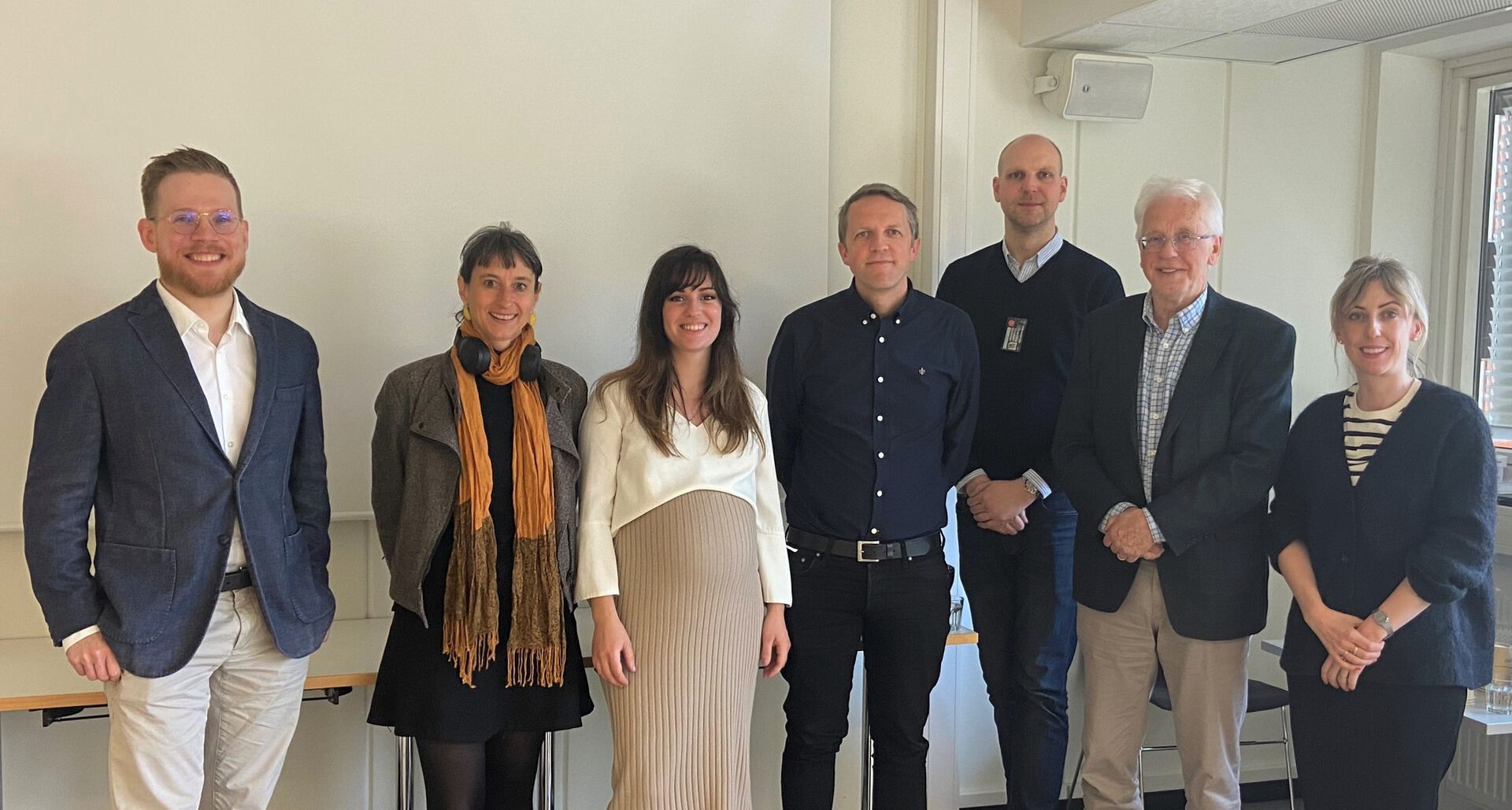The NAV scandal showed several weaknesses in national agencies' understanding and implementation of EU law. How did this happen and what can we learn from it? ARENA hosted a workshop to discuss these topics.

Researchers Martin Moland, Ingunn Ikdahl, Alicia Noëllie Saes-Louarn, Andreas Eriksen, Fredrik Dybfest Hjorthen, Erik Oddvar Eriksen and Karin Hjorthen Zelano. (Photo: Siri Katrine Helland Stai/ARENA)
What is NAV?
NAV, or the Norwegian Labour and Welfare Administration, is the public welfare agency in Norway. The agency administrates services such as unemployment benefit, work assessment allowance, sickness benefit, pensions, child benefit and cash-for-care benefit.
ARENA Projects COMPLEX and RETTS held a joint workshop on the 28 April where participants discussed central themes surrounding the NAV scandal and EEA relevance in Norwegian administration. In the NAV scandal it was revealed that the Norwegian Labour and Welfare Administration misapplied EEA rules, which lead to people being wrongly accused and convicted of welfare benefit fraud.
"The NAV scandal is the biggest social security scandal in modern Norwegian history" project leader Erik O. Eriksen points out.
Leaning on key results and papers developed within the projects, the workshop aimed at fostering dialogue and discussion about the administrative behaviour within Norwegian public administration and the implementation of EEA regulation, or lack thereof.
Theorising the NAV scandal
A key theme of the closely linked projects COMPLEX and RETTS is how national agencies incorporate EU law. COMPLEX introduces three modes of incorporation in their research which in different ways affect how agencies practice EU law and what consequences this can have. In turn, the project RETTS uses these modes of incorporation to analyse the NAV-scandal in more detail with the aim of developing a broader concept of due process understandable also outside the legal scope.
The NAV scandal has been widely discussed both within and outside of academic circles since its discovery in 2019. The workshop kicked off with discussions specifically on the scandal and how one can theorise the practices that resulted in such wide-spread incorrect interpretation of EEA regulation. A central topic of the workshop was how to identify and interpret principles to create an analytical framework of justification in casework within NAV.
Exploring other policy areas
"How is it that both lawyers and public officials failed to discover the relevance of EEA law? Is this something we also find examples of from other subject areas?," asks Erik O. Eriksen.
In addition to social security, COMPLEX explores other policy areas like market integrity and environmental protection. Participants also discussed whether the same oversight of EEA relevance can be found among decision-makers in other national agencies and what consequences this might have in the future.
To put the NAV scandal in a wider perspective the project members also presented preliminary results from interviews with decision-makers in national agencies, as well as results from a national survey on popular attitudes towards EEA implementation.
Papers presented
'Three modes of administrative behaviour: differentiated policy implementation and the problem of legal certainty' by Erik O. Eriksen. Available here.
'Forvaltningen i teori og praksis: NAVs trygdeskandale i forvaltningsteoretisk belysning' by Erik O. Eriksen. Unpublished.
'Identifisering og tolkning av prinsipper: Rammeverk for analyse av begrunnelser i NAV' by Andreas Eriksen. Available here.
'Rettssikkerhet gjennom begrunnelse: Nav og den offentlige bruken av fornuft' by Andreas Eriksen and Erik O. Eriksen. Unpublished.
'Fjords of Sovereignty: A case study of uneven application of EU directives in the Norwegian Environmental Agency' by Alicia Noëllie Saes-Louarn. Unpublished.






